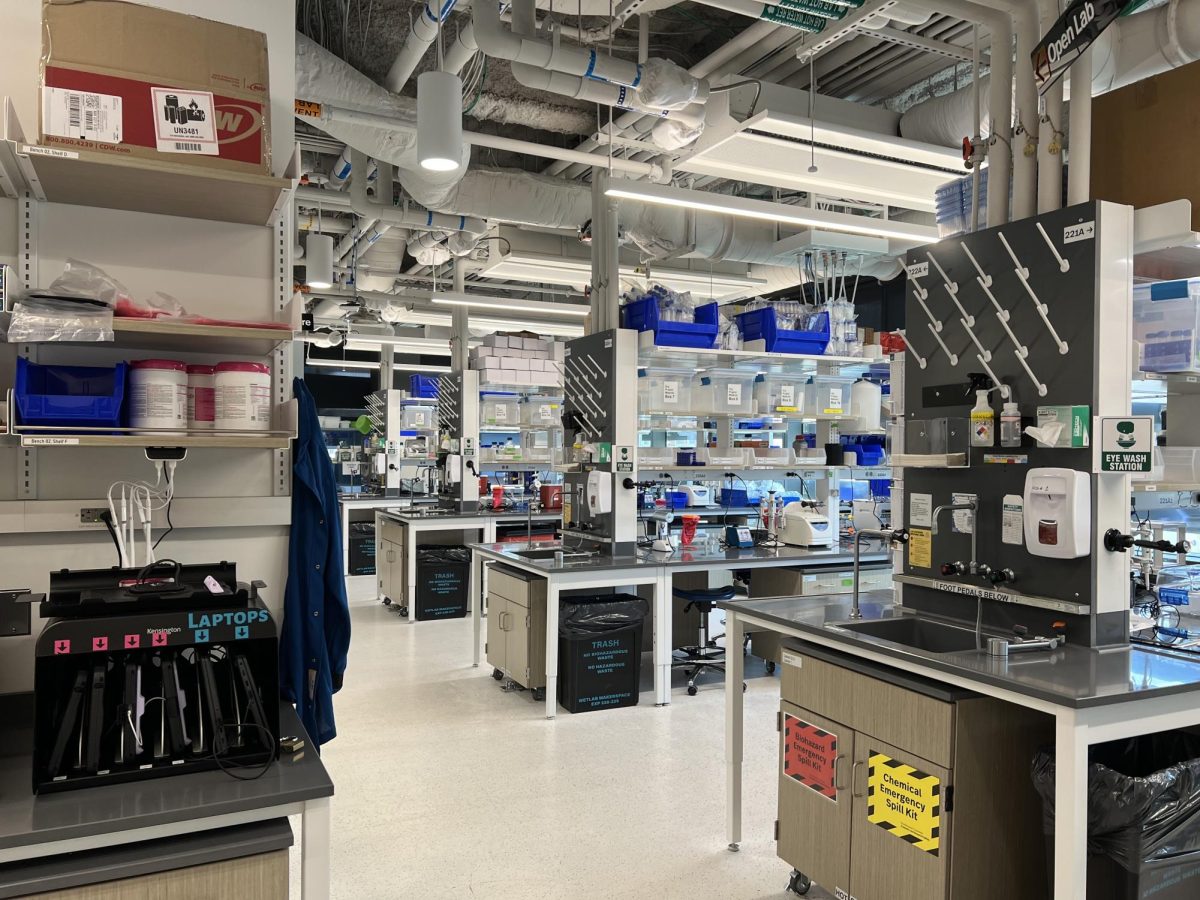By Bessie King
Many on-campus student groups, mentors and offices offer information and resources to learn about diversity, cultural differences and race issues. Still, all the information provided does not give students and administrators the freedom to discuss the meaning of the “N” word, the reasons why a term is derogatory or facts on why minorities still feel misrepresented.
“These are the hardest things to talk about and be honest about in a constructive way, in order to learn and demonstrate to the Northeastern community that these discussions can take place,” said Donnie Perkins, dean and director of the Office of Affirmative Action and Diversity.
Perkins, along with Malaika Edwards, diversity coordinator of the office, Kevin Rivera and Shandra Burch, co-op students at the office and Atina White, graduate office intern form Lesley University, organized the second series of Dialogues on Diversity. These dialogues, focused on race issues, are kept as confidential discussions between groups of eight to 15 members.
Each person’s race, ethnicity, religious affiliation and gender are considered when putting together groups to ensure balance and diversity, but anyone who wants to join – including staff and faculty – are not turned away. Once the groups are organized they meet weekly, for five weeks, in sessions lasting an hour and a half.
This semester 90 interested members joined seven groups and began their sessions on Monday. There were 26 mediators trained on how to facilitate discussions, 14 of which are serving the groups and 12 others are now resources for the university.
“The goal of these groups is to establish a safe environment where people can say what they want to say while being sensitive to what others are saying, leaving the fear of being attacked or criticized behind,” Edwards said.
The idea of study circles, or “dialogue circles” as Perkins calls them, evolved in 2001 with a model from the Study Circles Resource Center (SCRC), in Pomfret, Conn. Led by trained facilitators, these circles discuss diversity topics openly and confidentially. At the end of the program all the participants of the group or groups come together to share their general views and ideas on how a specific problem can be solved and the tactics to do so.
“I think that the program will open a broader sense of what diversity means,” Burch said. “I hope that members can take what they learn and apply it to campus and to classroom experiences.”
Student leaders, the Latin American Cultural Center, the Asian American Cultural Center, the African American Institute, Hillel, the Honors Program and the International Student and Scholar Institute contributed to the creation of the series. The Office of Residential Life helped with funding. Organizers said they view the dialogues as a good way to raise awareness and diversity understanding and as a foundation for future plans.
Perkins and his office strives to bring The Intergroup Relations Program to Northeastern. This program has succeeded at schools like the University of Michigan and the University of Oregon.
Here, graduate students receive training on diversity and are placed among fellow undergrads to help guide and create a comfortable and diverse campus atmosphere.
“We would like to see this program take place every semester with university support, and we also have a concrete formatted plan to move forward … the icing on the cake would be what these groups are able to generate as their ideas and actions to help the campus,” Perkins said.
Latin American Student Organization member Nadine Yaver said she believes the program is a good jump-start with constant reminder of the wants and needs in regards to diversity.
“There are a lot of issues on campus that we don’t speak about, there are no right or wrong answers; but we need to discuss such problems in order to agree to disagree and the only way you can have change is if you understand other people’s problems,” said Yaver, a senior criminal justice major who participates in the series.
The sessions will run through Nov. 18 when the seven groups will meet and draw suggestions on how the university can improve its equality. The suggestions will be public and delivered to university administrators by Perkins’ office.
“Our ultimate goal is to have diversity be included in any element of the university, to be the fabric of the university, and to clearly see and feel that diversity is a part of our campus,” Perkins said.
Registration for the fall’s diversity dialogues sessions is now closed. For more information about next semester’s series contact the Office of Affirmative Action and Diversity at 424 Columbus Place or through www.aa.neu.edu.








